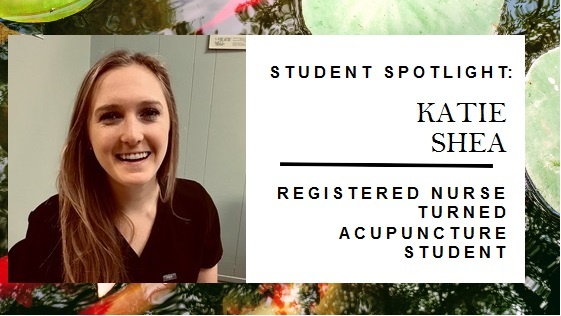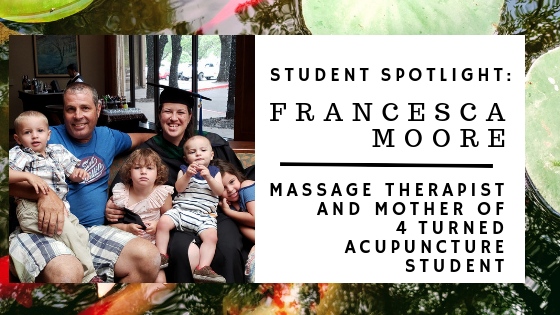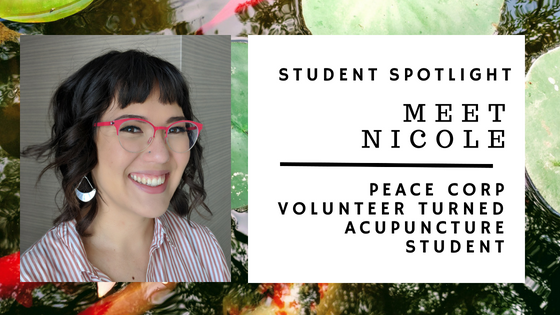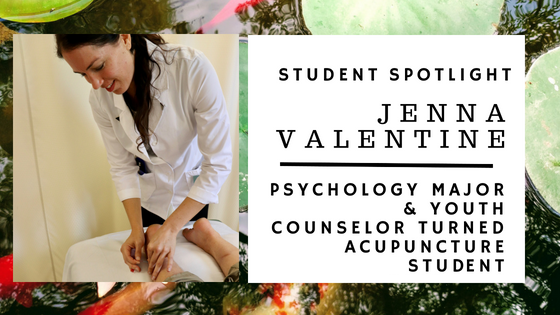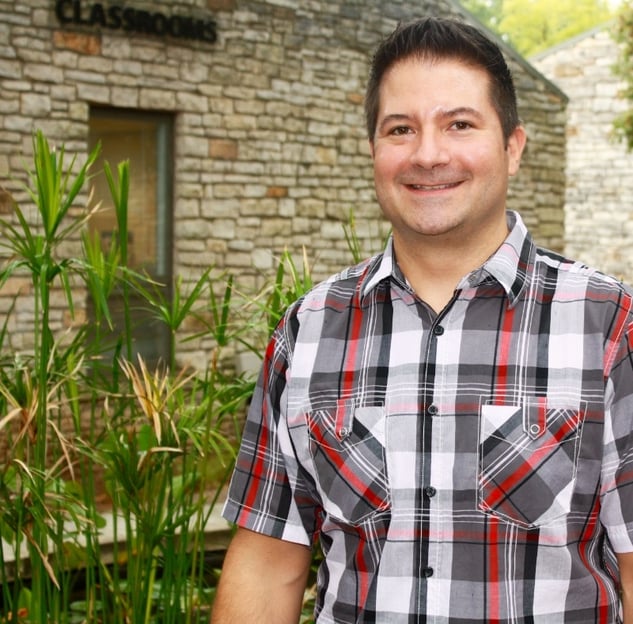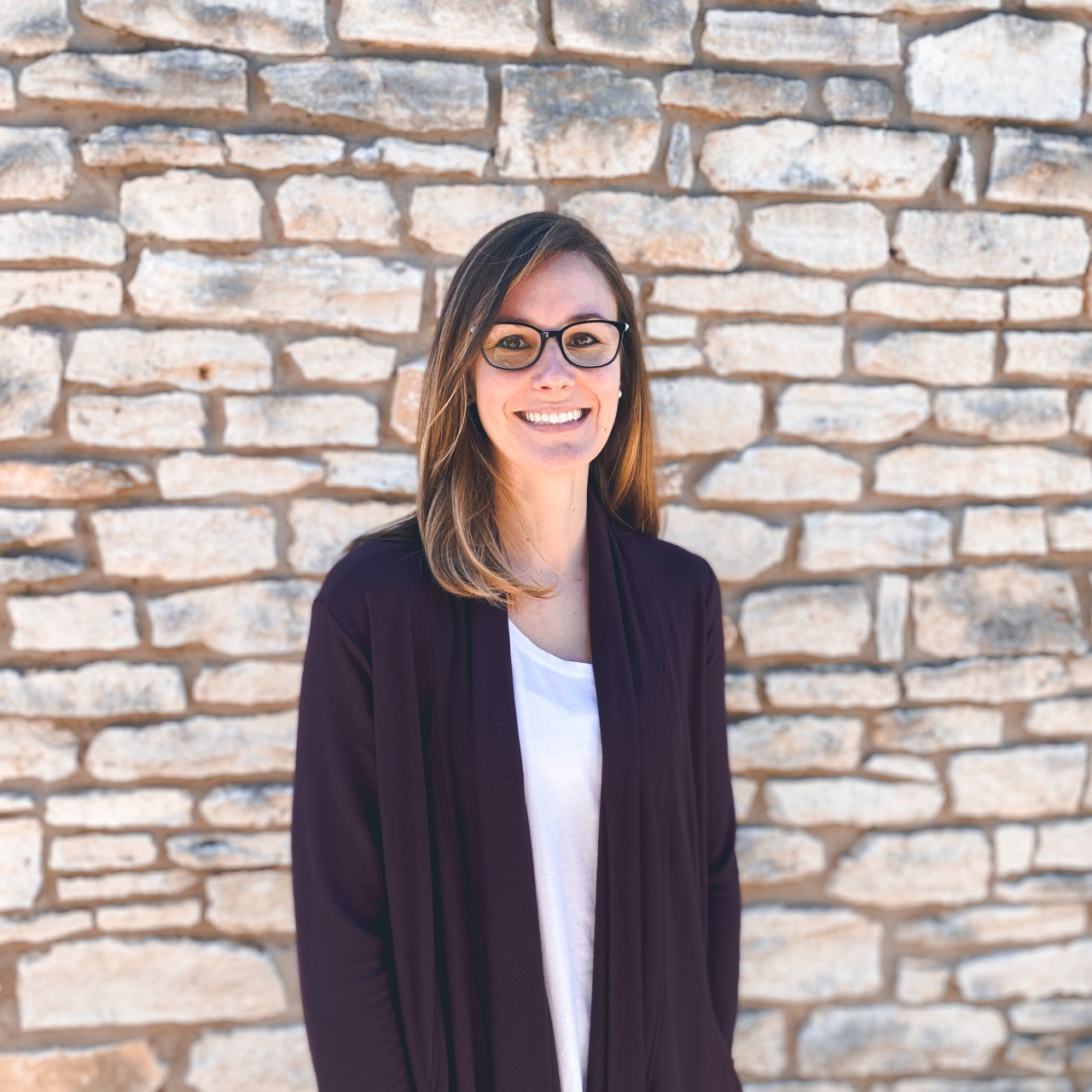
If you’ve found your way to this blog post, you’re likely interested in attending AOMA or—even more exciting—you’re already enrolled as an incoming student. Either way, welcome and congratulations on choosing this path since it’s a big step, no matter if you’re jumping right into another round of studies from your undergraduate degree, starting a new “second life” from a well-established career, or somewhere in between! Unlike undergraduate studies and many traditional graduate programs, there are not as many resources to research, select, and prepare for an advanced degree in Traditional Chinese Medicine and acupuncture, and you might be left wondering what to expect. To help provide some perspective on what your first term at AOMA might look like, here are some personal insights I gained during my first few months that hopefully will assist on the first step of this journey.
Here’s a quick overview of all the areas covered if you would like to scan ahead to a particular area:
—What can I expect the first week of class?
—What are the classes themselves like?
—What do students wear to class?
—What kind of schedule can I expect?
—What supplies are helpful?
—What are studies like outside the classroom?
—What about needling?
—How can I best prepare myself for this program?
What can I expect the first week of class?
Your first official day at AOMA will be a new student orientation the week before classes begin. Similar to any orientation, it’s a lot of information that will provide a general familiarization with the school, staff and faculty, available resources, and the road ahead to your degree. You will also spend some time covering administrative items such as the Health Insurance Portability and Accountability Act (HIPAA) and Occupational Safety and Health Administration (OSHA), and you’ll have an opportunity to continue to check in with this type of information regularly in homeroom meetings that are held each term. Orientation is also a great opportunity to get to know the members of your cohort, exchange emails, and start to create group text messages.
Once classes begin, significant time that first day of each course will be dedicated to providing an administrative overview, to include the course roadmap, assignments, exams, participation, attendance, and any other expectations. All of this information will be provided through AOMA’s Student Portal, which has a section dedicated to each class where the instructor uploads pertinent information, such as the syllabus, readings, and homework assignments. Each instructor is available through email, and many also offer weekly office hours.
Recommendation: Check your student portal in the days leading up to the first week of class to familiarize yourself with the course and review the syllabus. Most instructors do not provide the syllabus in class, so be sure to bring an electric or printed copy if you’d like to reference it (there is free WiFi on campus).
What are the classes themselves like?
Each class lasts about three hours, with most instructors providing a break every hour. Individual class schedules often run 9:30am-12:30am or 2-5pm, but this may vary. In Fall, Winter, and Spring terms, these classes meet once a week; in the Summer, they meet more frequently. Students take notes either electronically or hand written. It’s always a good idea to have some paper available for many of the diagrams you’ll want to draw, especially if you’re enrolled in Anatomy and Physiology. Your mind body class will meet once a week and run for an hour. Be prepared for a quick pace and lots of notes, along with plenty of opportunities to ask questions.
What do students wear to class?
Attire is very casual and students wear whatever is comfortable. Many classes involve palpation, so you’ll often be wearing tank tops and shorts or pants that can be rolled up. For the mind body classes, you’ll want to dress to be able to move around. If you’re attending any type of clinic or class in which you’ll be using needles, closed toe shoes are expected, along with attire appropriate for that setting.
Recommendation: If you’re like me and left a career of suits and business clothes to come to AOMA, you might get excited about cleaning out your closet. Jeans are not worn when you start working in the clinic, so keep that in mind as you’re deciding what clothing to bring along on the journey.
What kind of schedule can I expect?
This will vary based on the pace at which you’re approaching the program —fast-track, full-time, or part-time—and what prerequisites you might already have. Within your first term(s), you might expect a Foundations course, Anatomy and Physiology (A&P), and Point Locations, all of which run in a series of three courses over three terms (ex. A&P 1-3). You also have the opportunity for a mind body course in Qigong or Taiji, Clinic Theater, Acupuncture Techniques, Palpation, and Biomedical Terminology. It’s possible you may find yourself with one weekday off a week, and weekends are generally free. You might only have one class one day, and two another that are coupled with clinic or your mind body class. You’ll spend a lot of time studying outside of class, especially for finals, but many students still manage to juggle part-time work hours successfully. Classes will run about 12 weeks, with the exception of the Summer term, with one-week breaks around the sixth week and at the end of the term; in the Fall term, that break falls around the eighth or ninth week, and you get a two week break before Winter term. Before each term, you’ll work on-one-one with an advisor on the AOMA team to help chart out the road ahead and provide advice on your schedule. You may also schedule time with any of the advisors whenever you might like.
Recommendation: One great piece of advice I was given by successful acupuncturist was to hold off working during the first term if at all possible. This is tough given the financial burdens of everyday life, much less school, but it allows opportunity to start to find your stride and make the transition. You might also want to take a look at the Program at a Glance section of the latest AOMA program catalogs, which you can find here under the Program Catalogs section. On that same page, you can also find a link to the Academic Calendar to see exact dates for breaks and terms.
What supplies are helpful?
A lot of this will depend on your personal preference, but below are some items that most students found useful. You might expect to spend about $500 (give or take) on all these supplies and books, and keep in mind AOMA has a great library as well. Some students have been able to get old textbooks from other students, or from local bookstores (like Half Price Books).
—Laptop, tablet, and/or notebooks/notepaper - whatever you’d like to take notes
—Colored pens and highlighters
—Index cards
—Pencils (especially for exams)
—“Dots” - load up on these since you’ll use them when learning and practicing points (you’ll want 1/4” round stickers, such as Avery Color Coding Labels, which you can find on Amazon or at WalMart)
—Quizlet - you can get a free account, and this is a great alternative to index cards
It’s usually best to wait until the first day of any class to find out information about the required texts for class, which can be tough if you like to be prepared in advance. Based on my personal experience, you’ll most likely want to get copies of the following books for your first term (note: these are subject to change given the pace of new editions). You can usually find the best prices online, and AOMA also offers some of these in the store. While it seems like a pricy investment, my impression is that these texts will be resources for multiple classes, as well as preparations for board exams.
—A Manual of Acupuncture - Peter Deadman (ISBN: 9780951054659) - a must have!
—The Foundations of Chinese Medicine, 3rd Edition.- Giovanni Maciocia (ISBN: 9780702052163)
—Anatomy and Physiology, The Unity of Form and Function, 8th Edition - Ken Saladin (ISBN: 9781259277726
—Chinese Acupuncture and Moxibustion, 19th Printing - Cheng Xinnong (ISBN: 9787119059945)
—A Guide to Point Location - Fuyiu Yip - this soft-bound resource is available at the AOMA store
Recommendation: The Manual of Acupuncture (Deadman) app is also fantastic and will be a great resource alongside the text. The text often comes with a coupon for the app, so if you wanted to start familiarizing with some of the points, you could certainly purchase this book and app in advance of getting to AOMA.
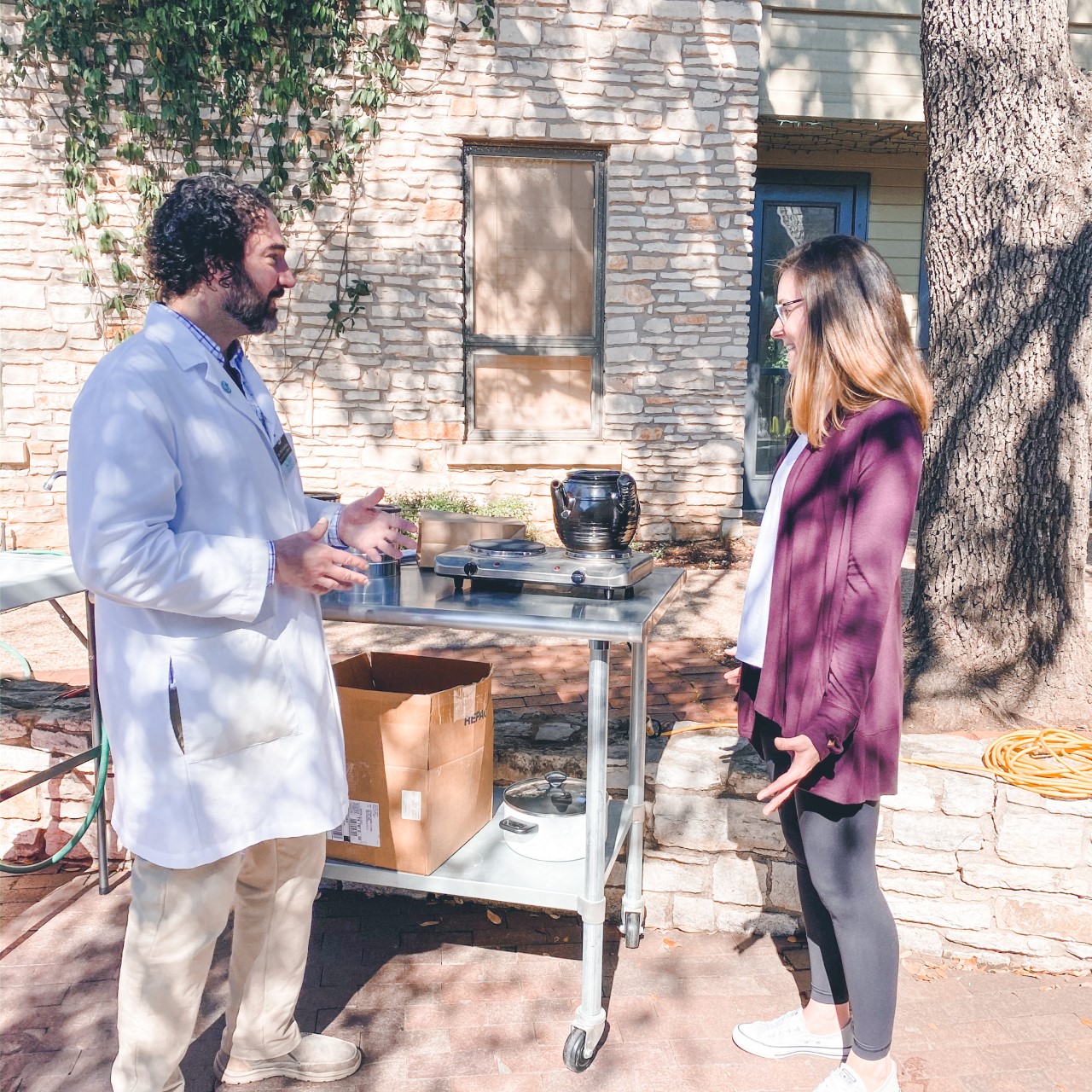
What are studies like outside the classroom?
Remember that question you likely got during your interview asking how you memorize a lot of information? There’s a reason that’s asked! This program inherently involves a great deal of memorization, which takes a lot…a lot…of time investment. You’ll be memorizing all of the acupuncture points, groups of points, needle depths/angles, muscles, information tied to the Five Elements, and the list goes on, not to mention herbs and herbal formulas once you begin those classes. Homework is class dependent, but most instructors are mindful about the homework and integrate this information in exams/exam prep, so all of the information ties together. You might have questions to answer, diagrams to draw, or some reasonable amounts of reading from one of the texts or an uploaded resource in your portal. Exams themselves might consist of multiple choice, true/false, fill in the blank, and/or essay questions, and you’ll also have practical components when it comes to Point Locations, Palpation, and Techniques, to name a few. Composing written reflections is another big part of the program, and you might begin to encounter these reflections your first term in Palpation class and clinic.
Recommendation: You’ll develop your own techniques for learning this information, but one option to consider is reviewing material the evening after each class and following up on a regular basis. It is a lot that might be very tough to cram in successfully the hours before an exam, so frequent review—even in small doses—might help build that foundation. Everyone at AOMA, no matter what term or year they are in, are all very willing to work together and help each other out, so you’ll likely find yourself working together with other students to practice and study (and also commiserate!). AOMA also offers great Student Services, which include mentors and tutors, as well as a whole well-thought-out website of resources with links that you’ll get just before orientation.
School-Life Balance Recommendation: Hobbies, self-care, and personal time with friends, family, and pets are all things you’ll want to incorporate in your days and weeks. While things will inevitably shift in your life as you immerse yourself in this intense program from a both schedule and financial perspectives—among many other things—it’s important to still make time for those things that make you happy and allow you to unplug.
What about needling?
You’ll have the excitement of purchasing your first needles from the AOMA store within your first couple weeks of class, and Acupuncture Techniques I will be your first foray into performing needling. You’ll begin spending a few weeks needling inanimate objects, such as a pack of tissues, a massage table, or a pillow, and your first needle in class will likely be on yourself. You’ll then work under the close care of your instructors in Techniques class, gathering in small groups to begin practicing needling on others. You’ll needle safe, fleshy spots on the arms and legs to begin. This might seem overwhelming at first as this is not a skill with which most of us are familiar in any way, but try and remember that you are only a beginning once, so enjoy the ride and ask a lot of questions. This will be an area you can practice on yourself, but likely will find more benefit working with your other students to palpate and needle.
Recommendation: Take as many opportunities as possible to work with as many other students and individuals as possible since every body is different, and skill is built on practice and experience.
How can I best prepare myself for this program?
More than likely, Traditional Chinese Medicine and acupuncture are areas about which you’re already passionate, so you may have some general familiarity with the concepts of meridians or channels, the Five Elements, Yin and Yang, and maybe even basic human anatomy. Since the pace of each of the classes is quite intense, any baseline familiarity—even simply having seen some of these concepts before—can help provide context as you get started. You might also brush up on basic anatomy, if you’re not coming in with that background already, to assist with Anatomy and Physiology I. Some personal recommended readings that I read in the years leading up to my decision to attend AOMA include:
—Between Heaven and Earth - Harriet Beinfield and Efrem Korngold
—The Web That Has No Weaver - Ted Kaptchuk
—The Spark in the Machine - Dan Keown
—Voices of Qi - Alex Holland
You can also find a lot of videos on YouTube, or even look up Podcasts on the subject (there are some good ones out there with Dan Keown that I ran across). As mentioned earlier, the Peter Deadman book and app are great and, in hindsight, would have been great resources to browse. AOMA also has another blog article by Kate Wetzel on recommended reading—a lot of which overlaps with my list—which you can find here.
If you haven’t already had an acupuncture treatment, I highly recommend gaining that experience. You will have the opportunity to get acupuncture treatments at AOMA’s clinic, and many students come into the program without having had a treatment, but it is incredibly helpful to provide perspective. If you can get regular treatments and maybe gather insights from your acupuncturist, even better!
All this might seem like a great deal of information; however, the fascination and excitement you’ll experience as you delve into this medicine will take center stage and continue to remind you why you chose this path. Know that you not only have a bunch of resources available to you at AOMA, but that a group of fellow students who are on the same path and going through similar experiences, will be alongside you from the moment you step foot on campus your first day. If you have any other additional questions about student life, or even relocating to Austin, don’t hesitate to reach out to the AOMA admissions team. Best of luck, and welcome again to this great journey!
.png?width=632&name=Jingfang%20Partnership%20(2).png)
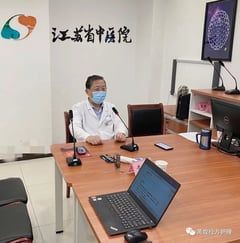




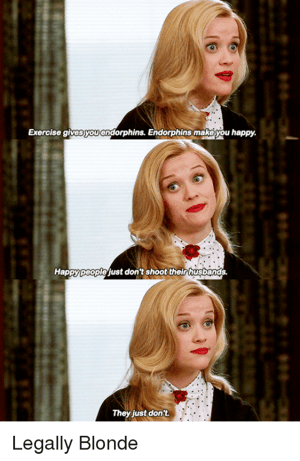
 ose. I moved back to Austin and began work at a wonderful organization, The Marbridge Foundation, which is a residential care facility for adults with intellectual disabilities. I worked there full-time before starting AOMA master’s program. I stayed on as a part-time employee all throughout my time at AOMA, and left Marbridge all together about a year ago. It was a wonderful place to work and my experiences there instilled in me patience, communication skills, and stress management skills for myself as well as for patients.
ose. I moved back to Austin and began work at a wonderful organization, The Marbridge Foundation, which is a residential care facility for adults with intellectual disabilities. I worked there full-time before starting AOMA master’s program. I stayed on as a part-time employee all throughout my time at AOMA, and left Marbridge all together about a year ago. It was a wonderful place to work and my experiences there instilled in me patience, communication skills, and stress management skills for myself as well as for patients.